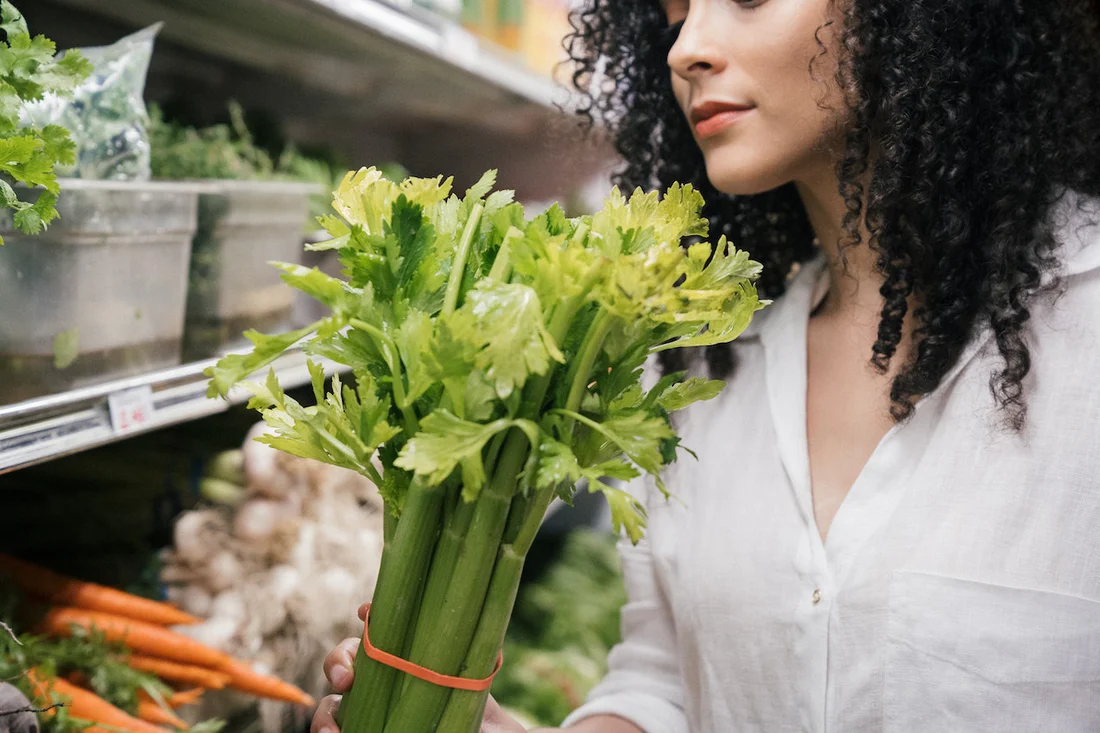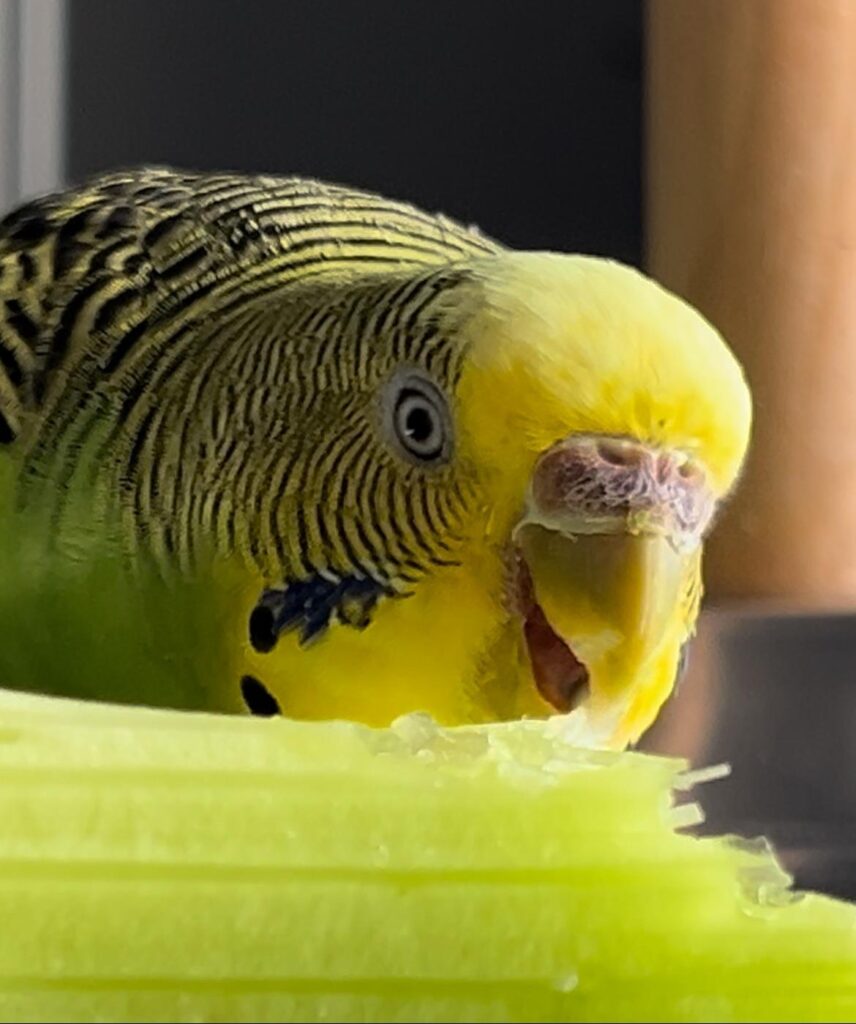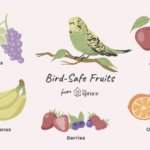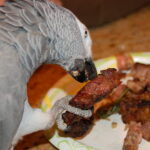Yes, parrots can eat celery. Celery is safe and nutritious for parrots in moderation.
Celery provides a crunchy, hydrating snack for parrots. This vegetable is low in calories and rich in vitamins and minerals. Parrots enjoy the texture and the mild taste of celery. It’s important to wash celery thoroughly to remove pesticides. Always cut it into small, manageable pieces to prevent choking hazards.
While celery is healthy, it should be part of a varied diet. Parrots need a balanced mix of fruits, vegetables, nuts, and seeds. Overfeeding celery or any single food can lead to nutritional imbalances. Always observe your parrot’s response to new foods and consult a vet for dietary advice.

Credit: parrotjunkie.com
Introduction To Parrot Diets
Parrots are vibrant and intelligent birds. Their diet is crucial for their health and happiness. A balanced diet ensures they live long and active lives.
Common Foods For Parrots
Parrots eat a variety of foods. These include seeds, nuts, fruits, and vegetables. Each type of food provides unique nutrients.
- Seeds: Sunflower, millet, and safflower seeds are popular.
- Nuts: Almonds, walnuts, and pecans are good choices.
- Fruits: Apples, bananas, and berries are favorites.
- Vegetables: Carrots, spinach, and bell peppers are nutritious.
Importance Of A Balanced Diet
A balanced diet is vital for parrots. It prevents malnutrition and obesity. It also ensures they get all necessary vitamins and minerals.
| Food Type | Benefits |
|---|---|
| Seeds | Rich in fats and proteins |
| Nuts | Provide essential fatty acids |
| Fruits | High in vitamins and antioxidants |
| Vegetables | Loaded with vitamins and minerals |
A mix of these foods ensures a healthy parrot. Always offer fresh and clean food. Avoid foods that are toxic to parrots.
Celery As A Parrot Food
Parrots enjoy a variety of fruits and vegetables. Celery is often considered for their diet. But is it safe and nutritious? Let’s explore the benefits and concerns.
Nutritional Value Of Celery
Celery is low in calories and high in water content. It contains several important nutrients:
- Vitamin K: Essential for blood clotting and bone health.
- Vitamin A: Supports eye health and immune function.
- Folate: Important for cell division and DNA formation.
- Potassium: Helps regulate fluid balance and muscle contractions.
- Fiber: Aids in digestion and prevents constipation.
| Nutrient | Amount per 100g |
|---|---|
| Calories | 16 |
| Water | 95% |
| Vitamin K | 29.3 mcg |
| Vitamin A | 449 IU |
| Folate | 36 mcg |
| Potassium | 260 mg |
| Fiber | 1.6 g |
Suitability For Parrots
Celery can be a good addition to a parrot’s diet. It provides hydration and essential nutrients. But there are a few things to consider:
- Chop into small pieces: This helps prevent choking hazards.
- Remove strings: The fibrous strings can be tough to digest.
- Offer in moderation: Too much can cause digestive issues.
- Balance diet: Combine with other fruits and vegetables.
Overall, celery can be a healthy treat for parrots. Just ensure it is prepared safely and given in the right amounts.
Health Benefits Of Celery
Celery is a healthy snack for parrots. It offers many benefits for your feathered friend. This crunchy vegetable is packed with essential nutrients. Let’s explore the health benefits of celery for parrots.
Vitamins And Minerals
Celery is rich in vitamins and minerals. It contains Vitamin A, which is good for eye health. Vitamin K in celery helps with blood clotting. This vegetable also has Vitamin C, which boosts the immune system.
Celery provides important minerals too. It has calcium, which strengthens bones. Potassium in celery helps with heart function. Magnesium in celery supports muscle function.
| Nutrient | Benefit |
|---|---|
| Vitamin A | Eye health |
| Vitamin K | Blood clotting |
| Vitamin C | Immune system boost |
| Calcium | Stronger bones |
| Potassium | Heart function |
| Magnesium | Muscle function |
Hydration Benefits
Celery has a high water content. This helps keep your parrot hydrated. Hydration is crucial for parrots. It helps in digestion and keeps their body temperature stable.
Offering celery to your parrot can be a refreshing treat. It can help them stay cool on hot days. The crunchiness of celery also promotes beak health. Parrots enjoy the texture, which keeps them engaged.

Credit: www.youtube.com
Potential Risks Of Celery
Feeding celery to parrots can pose some risks. It’s important to understand these risks before adding celery to your parrot’s diet.
Choking Hazards
Celery has long, fibrous strands. These strands can cause choking in parrots. Cut the celery into small, manageable pieces to minimize this risk. Always supervise your parrot while it eats celery.
Pesticide Concerns
Celery often contains high levels of pesticides. Pesticides can be harmful to parrots. Always wash celery thoroughly before feeding it to your parrot. Organic celery can be a safer choice.
| Risk | Details | Precaution |
|---|---|---|
| Choking Hazard | Long, fibrous strands | Cut into small pieces |
| Pesticide Concerns | High pesticide levels | Wash thoroughly or buy organic |
- Always supervise your parrot while it eats celery.
- Cut celery into small, bite-sized pieces.
- Wash celery thoroughly to remove pesticides.
- Consider organic celery for a safer option.
How To Prepare Celery
Parrots can enjoy celery as a healthy treat. Proper preparation ensures it is safe and enjoyable for your feathered friend. Follow these steps to prepare celery for your parrot.
Washing And Cleaning
Start by washing the celery thoroughly. Rinse under cold water to remove dirt and pesticides.
Use a vegetable brush to scrub the stalks gently. This helps eliminate any remaining residues.
Ensure every part of the celery, including leaves, is clean. Pat dry with a paper towel.
Serving Suggestions
Cut the celery into small, bite-sized pieces. This makes it easier for your parrot to eat.
- Use a sharp knife to avoid crushing the celery.
- Remove any tough or stringy parts. These can be hard for parrots to chew.
You can serve celery as-is or mix it with other fruits and vegetables. Create a colorful and nutritious salad for your parrot.
Introduce celery gradually. Monitor your parrot’s reaction to ensure they enjoy and digest it well.
Portion Control
Parrots can enjoy celery, but portion control is key. Overfeeding celery can lead to health issues. Let’s explore the right serving size and feeding frequency for your feathered friend.
Serving Size
When feeding celery to your parrot, keep portions small. A good size is a small piece, about one inch long. This size is easy for parrots to handle and digest.
| Parrot Size | Celery Portion Size |
|---|---|
| Small Parrot | 1 inch piece |
| Medium Parrot | 2 inch piece |
| Large Parrot | 3 inch piece |
Always wash celery before feeding. Remove any pesticides and dirt. Cut the celery into small, manageable pieces.
Frequency Of Feeding
Feed celery to your parrot in moderation. It’s best to offer celery once or twice a week. This keeps their diet balanced and healthy.
- Once a week for small parrots
- Twice a week for medium and large parrots
Offer a variety of foods. This ensures your parrot gets all the nutrients they need. A balanced diet is essential for their health and well-being.
Other Vegetables For Parrots
Parrots need a balanced diet to stay healthy. Besides celery, other vegetables can offer essential nutrients. This section explores some of the best vegetable options for parrots.
Leafy Greens
Leafy greens are rich in vitamins and minerals. These vegetables keep your parrot healthy and active.
- Spinach: Packed with iron and calcium, spinach supports bone health.
- Kale: Kale provides vitamins A, C, and K, boosting the immune system.
- Romaine Lettuce: This lettuce is low in calories but high in fiber.
- Swiss Chard: Swiss chard is full of antioxidants and supports eye health.
Root Vegetables
Root vegetables are another excellent choice for parrots. They offer a variety of nutrients and are easy to prepare.
| Vegetable | Benefits |
|---|---|
| Carrots | Rich in beta-carotene, carrots improve vision and immune function. |
| Sweet Potatoes | Sweet potatoes are high in fiber and vitamins A and C. |
| Beets | Beets support blood health and provide essential minerals. |
| Turnips | Turnips are low in calories but high in nutrients and fiber. |

Credit: pangovet.com
Conclusion
Parrots can safely enjoy celery in moderation. It’s a crunchy and hydrating snack for them. Always wash celery thoroughly before feeding. Combine celery with other fruits and vegetables for a balanced diet. Ensure variety to keep your parrot healthy and happy.
Celery can be a great addition to your parrot’s meals.
Ryan Everhart is a passionate bird enthusiast and blogger, primarily writing on his website, Avian Whispers. His journey into the world of bird blogging began with a deep interest in parrots, a species that captivated his attention for their intelligence and social behavior. Over time, his content expanded to cover a broader range of bird species, offering insights into bird behavior, care, habitats, and conservation.
Ryan is dedicated to educating his audience, which includes both new bird owners and seasoned enthusiasts. His writing is filled with personal experiences, expert knowledge, and practical advice on bird care. Through Avian Whispers, he aims to foster a deeper appreciation for birds, emphasizing their role in nature and the joys of having them as pets.
Starting with articles focused on parrots, Ryan’s work now encompasses a diverse range of topics such as feeding, training, habitat enrichment, and bird health. His love for birds extends beyond parrots, diving into various avian species. His informative and heartfelt writing reflects his commitment to the well-being of birds and the desire to help others connect with these creatures.
As a growing voice in the bird blogging community, Ryan strives to provide a platform where bird lovers can learn, share experiences, and connect over a shared passion for avian life. His blogs are not only educational but also serve as a reminder of the importance of protecting and nurturing the bond between humans and birds.




